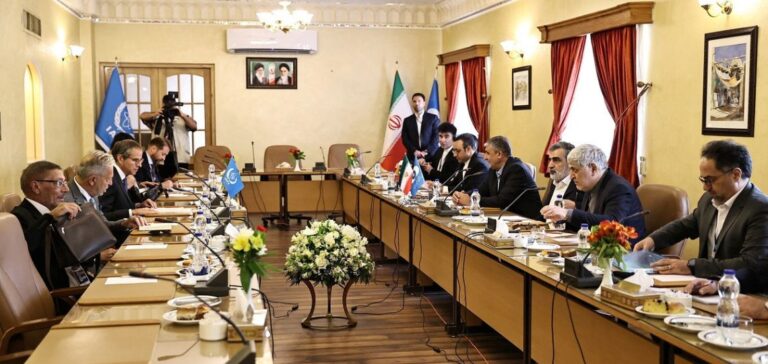At a nuclear conference in Iran, Rafael Grossi stressed the importance of resolving disputes over Iran’s nuclear program. He stressed the need for “concrete, practical and tangible measures” to speed up the process. However, relations between Tehran and theIAEA (International Atomic Energy Agency) have deteriorated since his last visit in March 2023. Inspections were restricted, some surveillance cameras disconnected and the accreditation of a panel of experts withdrawn.
Rafael Grossi expressed his concern about the limited monitoring of Iran’s nuclear program. This reduction in cooperation has heightened the concerns of the international community, given that Teheran has enough material to build several atomic bombs, according to experts. However, Mohammad Eslami, head of the Atomic Energy Organization of Iran (AEOI), reaffirmed Iran’s right to reduce its commitments in response to international sanctions.
Hostile action and political context
Mohammad Eslami condemned the “hostile actions” against Iran’s nuclear program, accusing Israel of being the instigator. Iran maintains that its nuclear activities remain strictly peaceful and that it is acting in compliance with the Nuclear Non-Proliferation Treaty (NPT). Rafael Grossi stressed that relations between the IAEA and Iran are not influenced by “outside parties”. He also deplored the April 19 attack in central Iran, attributed to Israel, in retaliation for Iranian fire against Israel.
The withdrawal of the United States from the JCPOA agreement in 2018 has prompted Tehran to gradually free itself from its commitments under the agreement. Grossi described the discussions with the Iranian authorities as “important”, as they enable concrete steps to be taken to speed up the cooperation process.
Developing Iran’s nuclear fleet
Despite the tensions, Iran is keen to expand its nuclear facilities to meet the growing demand for electricity. Mohammad Eslami confirmed that the Iranian government is planning to expand its nuclear sites in Isfahan, Natanz, Fordo and Bouchehr. Grossi called on Iran to restore cooperation and improve transparency. The steps taken by Iran to comply with IAEA guidelines will be essential to ensure solid cooperation.
Cooperation between the IAEA and Iran must be based on concrete measures and a commitment to transparency. The Vienna-based agency will continue to monitor the implementation of Tehran’s commitments. Grossi hopes that the current discussions will lead to improved cooperation and ease tensions.






















